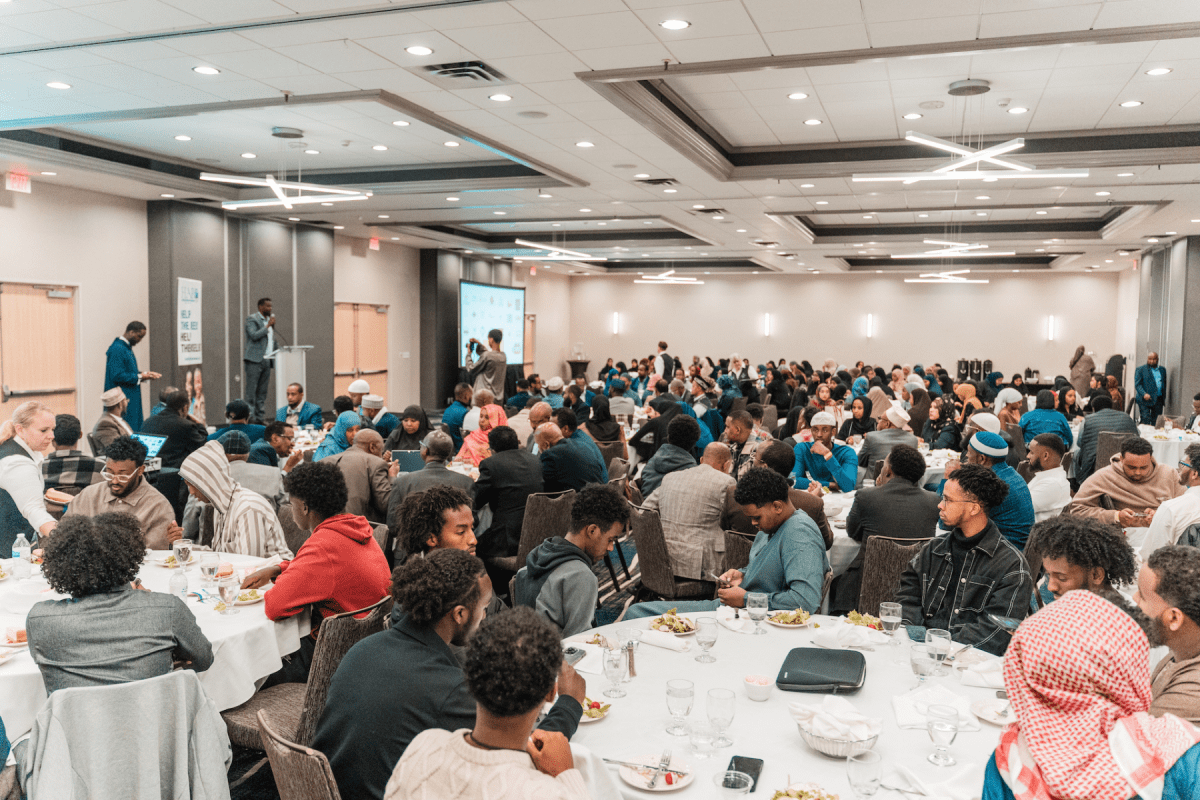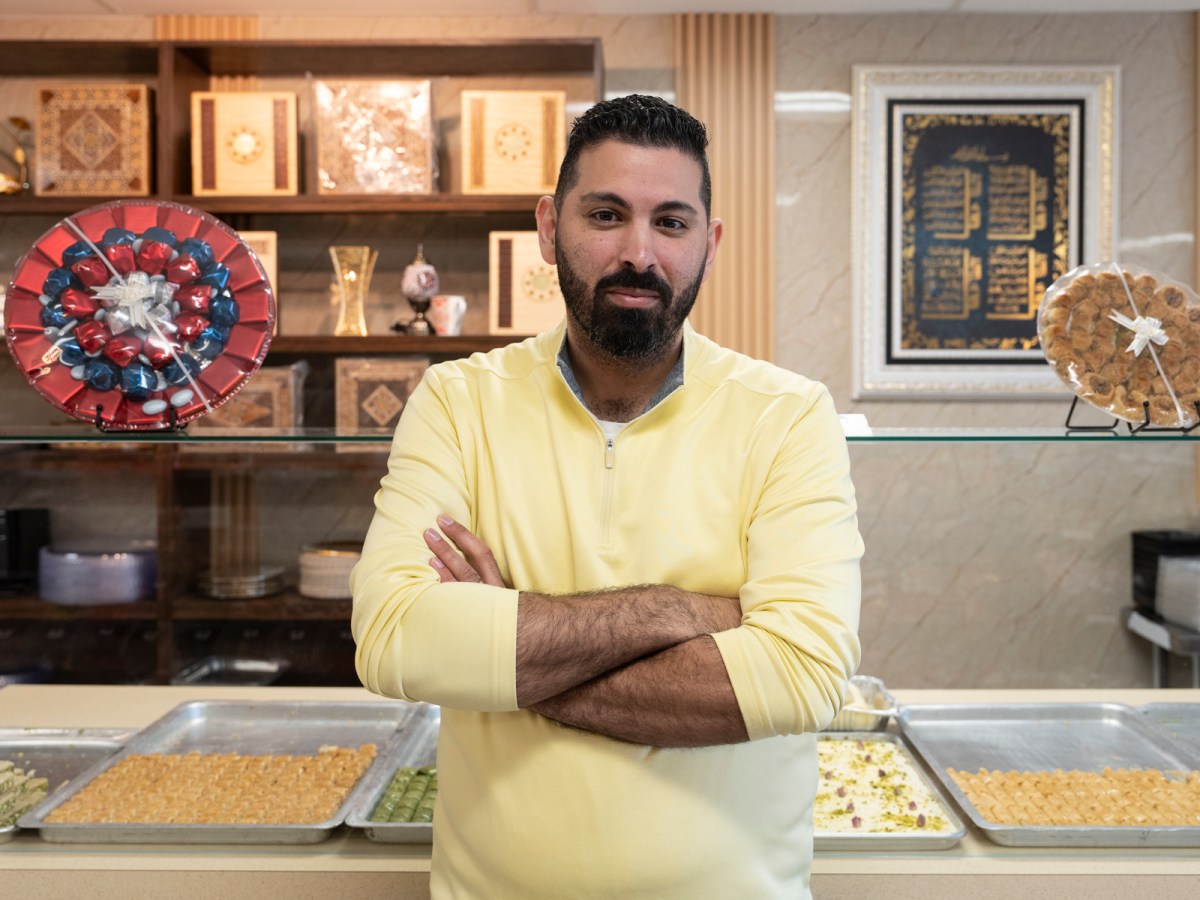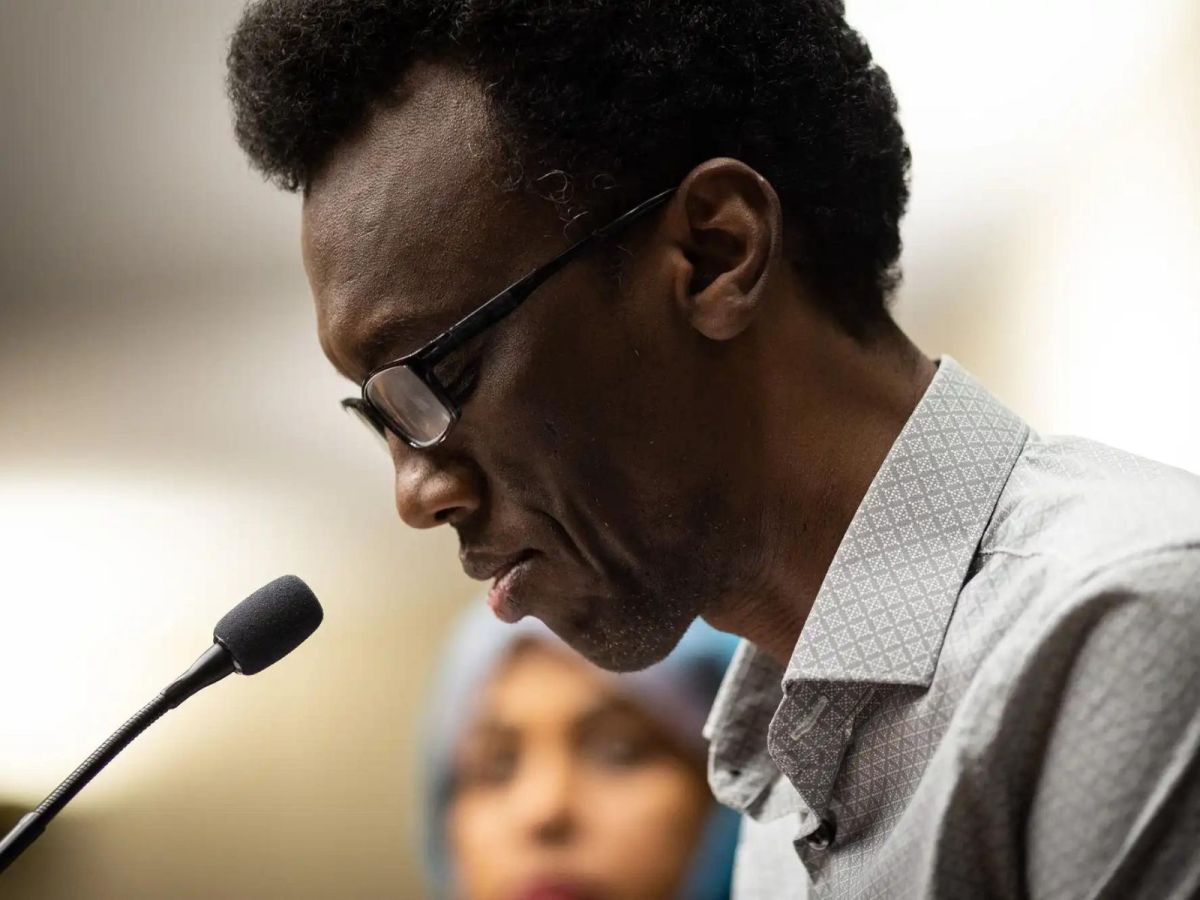The Humanitarian African Relief Organization raised more than $150,000 for its efforts to support children in the Horn of Africa at a recent community event that was attended by about 200 business owners, professionals, youth, religious scholars, and elders.
In one of the emotional highlights of the October 7 gathering at the Delta Hotel, the Minneapolis-based organization highlighted the story of Dunia Hassan Ali, a Somali woman who has been raising nine children without the means to provide shelter, food, or education.
Leaders from the Humanitarian African Relief Organization (HARO) announced they would take on the cost of the children’s education and buy a house for the family on the outskirts of Mogadishu. They said one community member, a truck driver they did not identify by name, had pledged to sponsor the family for a year.
HARO has offices in all major cities in the Horn of Africa populated by ethnic Somalis, including Mogadishu, Garowe, Hargeisa, and in the Somali State in Ethiopia. It has supported victims of the Waheen market fire in Hargeisa last April, the Beledweyne floods in May that displaced thousands of people, the Jigjiga market fire in July, and the October 14, 2017, bomb blasts in Mogadishu.
HARO President Ali Haji thanked attendees for their support, highlighting HARO’s work in the Horn of Africa by showing a video about two schools in Ethiopia that HARO helped build.
Afro Deli owner Abdirahman Kahin, who sponsored a school, quoted former U.S. Senator Paul Wellstone: “We all do better when we all do better.”
Abdirahman said HARO leaders first approached him for donations seven years ago, when his business was struggling.
“I started donating, and as a result, my business revenues increased,” he said, thanking HARO leaders for allowing him to help support needy people.
HARO sponsors up to 500 children who live with their siblings and their mothers after their fathers died, Ali Haji said. The only condition is that the child must attend school.
“About $40 per month, or around $500 a year, is enough to provide one child with shelter, food, healthcare, and an education,” he said.
Ali told Sahan Journal that HARO also helped dig 50 shallow wells in Somalia, and repaired boreholes for communities that could not maintain them. Boreholes and shallow wells provide water for drinking, irrigation, and livestock, which are essential for the livelihoods of rural residents in Somalia.
According to the World Health Organization, only 52 percent of Somalis have access to a primary water supply. This number is even lower in rural areas, with only 28 percent of households accessing an improved water source.
Mohamud Awil Mohamed, the executive director of HARO and a doctoral student in history and Islamic law at the University of Pennsylvania, encouraged young people to contribute to relief efforts.
“The money you spend on four cups of coffee at Starbucks is sufficient to sponsor a child and make a huge difference in their future,” said Mohamud, who was born and raised in Minnesota.
Sheik Yussuf Abdulle, the executive director of the Islamic Association of North America, spoke about the importance of supporting HARO’s work. He was the executive director of HARO in 2017 and coordinated relief efforts for the victims of the October 14 twin truck explosions in Mogadishu.
“We are all HARO,” he said, “and this organization belongs to the Somali community.”
Anisa Hassan, president of the Somali Students Association at the University of Minnesota, described the event as one where younger and older generations come together and give back to the community.
“I want to continue in any way that I can,” she said.
Normandale Community College student Ruweida Diriye, who is studying sustainable agriculture and food systems, said it was the first time she had heard about HARO and its work.
“I am very privileged to see their work as someone who wants to contribute to my own country,” she said.
How to help:
If you would like to help HARO support parentless children in the Horn of Africa, there are a number of ways you can get involved:
- Donate to HARO online.
- Sponsor a child.
- Volunteer your time or skills.
- Contact HARO at info@harousa.org or (612) 259-7251.







